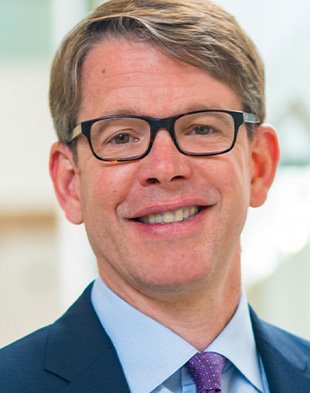Professor Andrew Guthrie Ferguson
Washington, DC
American University, Washington College of Law
Williams College
University of Pennsylvania Carey Law School
Andrew Guthrie Ferguson is a Professor of Law at American University Washington College of Law. Professor Ferguson teaches Evidence, Criminal Procedure, and a seminar examining police surveillance technology, privacy, and civil rights.
Professor Ferguson teaches and writes in the area of criminal procedure, evidence, and criminal justice technologies. He is a national expert on predictive policing, big data surveillance, the “Internet of Things,” juries, and the Fourth Amendment. His articles have appeared in the University of Pennsylvania Law Review, the Georgetown Law Journal, the California Law Review, the Cornell Law Review, the UCLA Law Review, the Minnesota Law Review, the Northwestern Law Review, the Vanderbilt Law Review, the Iowa Law Review, and the Notre Dame Law Review among others.
Professor Ferguson is the 11th most cited scholar in criminal law/procedure according to the Leiter Law School Reports Rankings (2016-2020). He served as an Adviser on ALI’s Principles of the Law, Policing project.
Professor Ferguson’s book The Rise of Big Data Policing: Surveillance, Race, and the Future of Law Enforcement examines how surveillance technology and predictive analytics shapes modern policing. His first book Why Jury Duty Matters: A Citizen’s Guide to Constitutional Action is the first book written for jurors on jury duty. He also stars in the “Welcome To Jury Duty Video” in D.C. Superior Court seen by more than 30,000 citizens annually. He has recently written a book for incoming 1L students called The Law of Law School: The Essential Guide for First Year Law Students.
His legal commentary has been featured in numerous media outlets, including The New York Times, The Economist, the Washington Post, CNN, NPR, Time, USA Today, the ABA Journal, The Atlantic, The Huffington Post, and other national and international newspapers, magazines, and media sites.
Prior to American University Washington College of Law, Professor Ferguson was a Professor of Law at the UDC David. A. Clarke School of Law. Prior to law teaching, Professor Ferguson worked as a supervising attorney at the Public Defender Service for the District of Columbia. As a public defender for seven years, he represented adults and juveniles in serious felony cases ranging from homicide to misdemeanor offenses. In addition to participating as lead counsel in numerous jury and bench trials, he argued cases before the District of Columbia Court of Appeals. Before joining the Public Defender Service, Professor Ferguson was awarded the E. Barrett Prettyman Fellowship at the Georgetown Law Center’s Criminal Justice Clinic. For two years as a Prettyman Fellow, he taught and supervised third-year clinical students involved in the criminal justice clinic. Immediately after graduating from law school, he clerked for the Honorable Chief Judge Carolyn Dineen King of the United States Court of Appeals for the Fifth Circuit.
